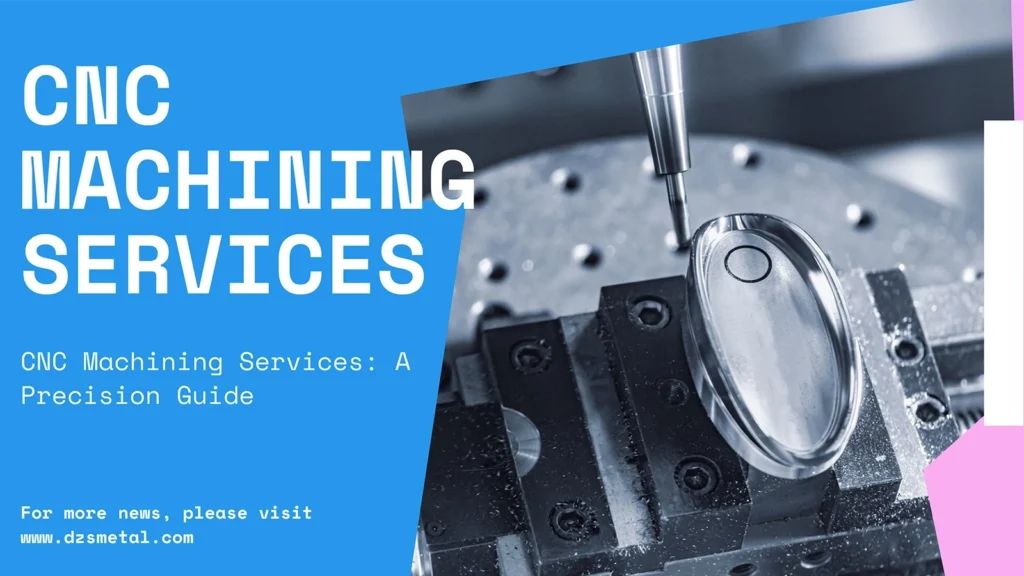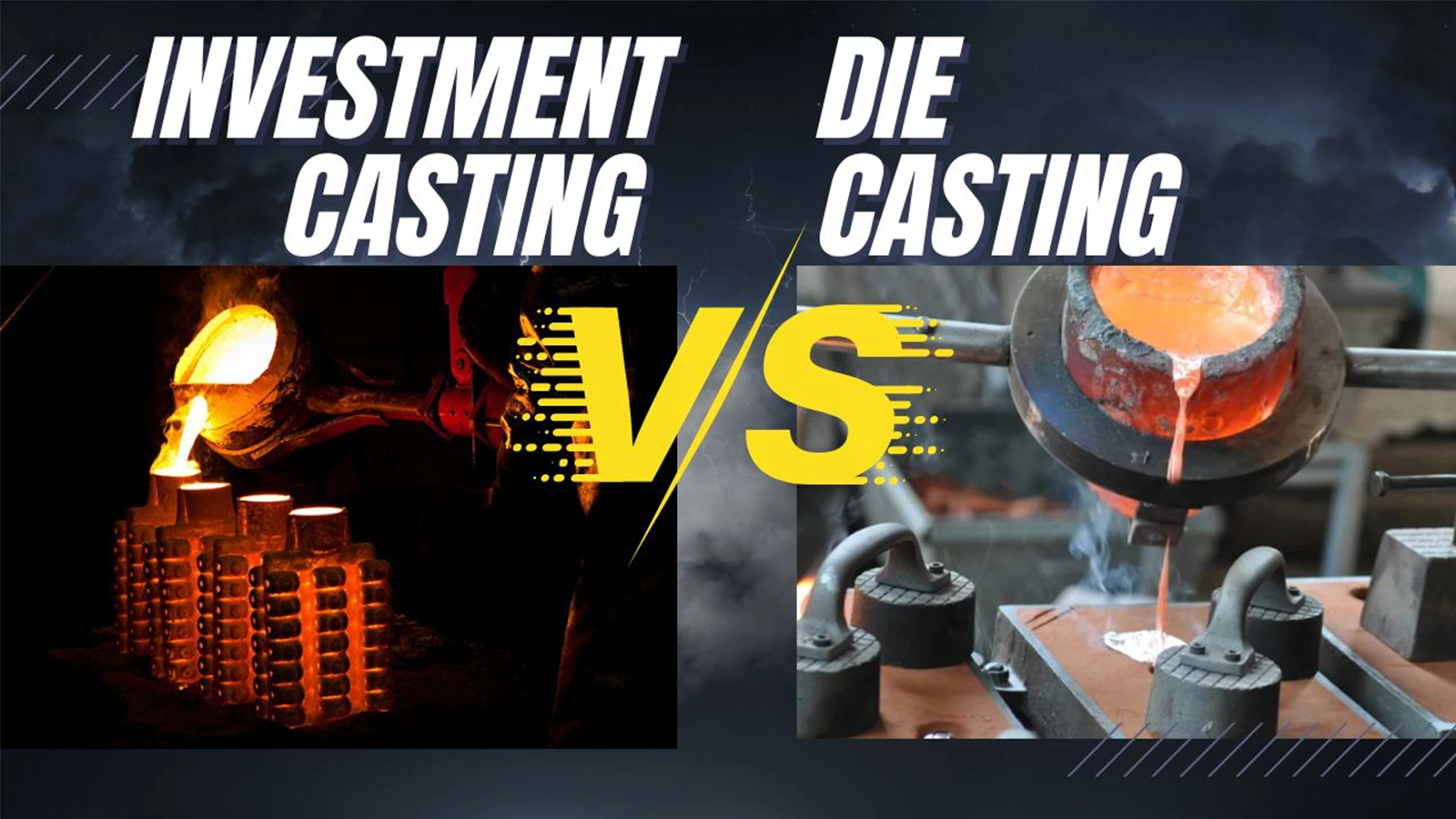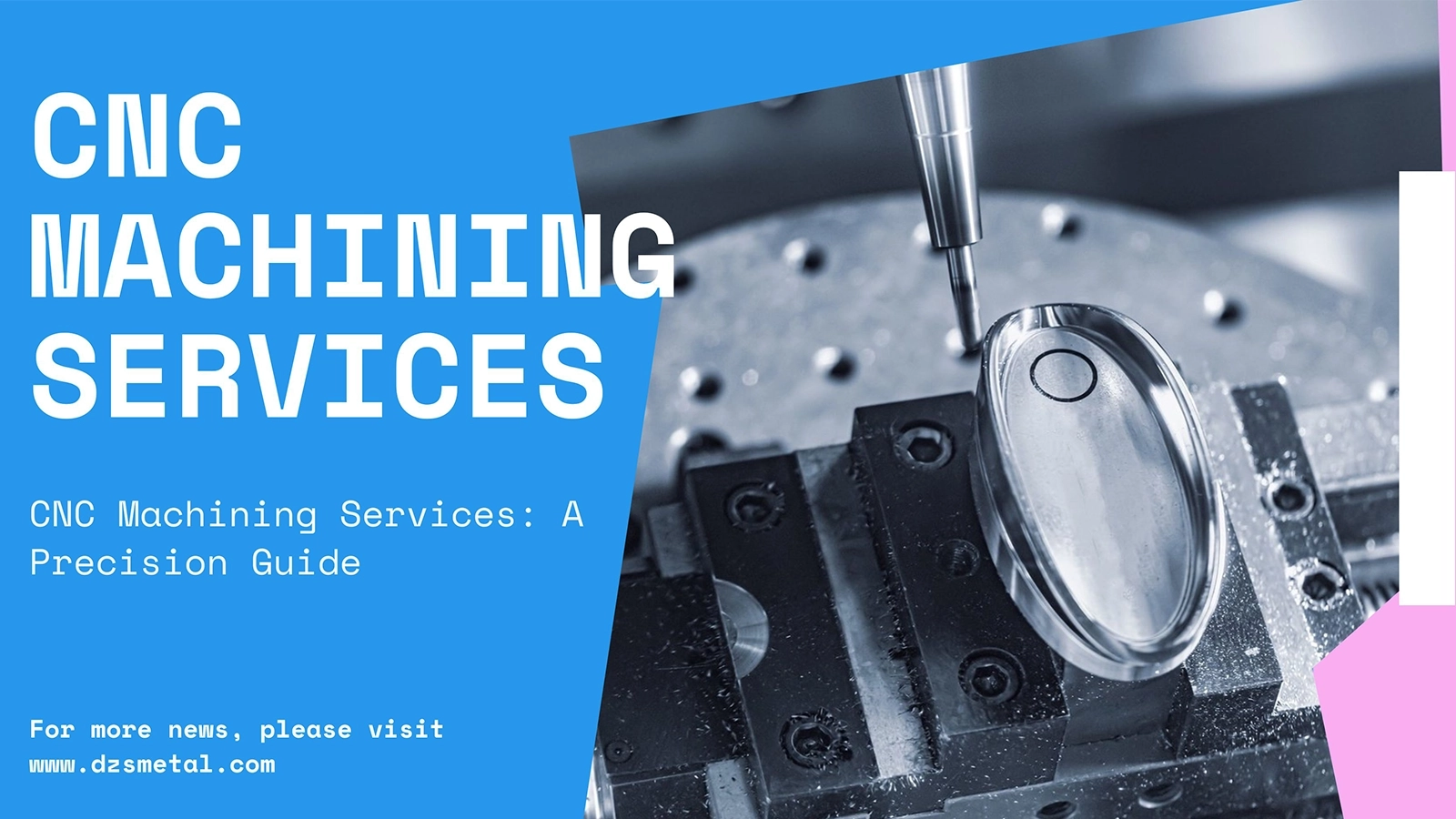Have you ever wondered how industries achieve extreme precision in manufacturing? What makes CNC machining services the go-to solution for producing high-quality components? And how does this advanced technology shape everything from aerospace CNC machining services to medical CNC machining services? If you’re searching for answers, you’ve come to the right place.
CNC machining services are the foundation of modern industrial production, offering unmatched accuracy, efficiency, and scalability. This technology leverages computer-controlled tools to manufacture custom CNC machining parts with micron-level precision, reducing human error and maximizing production speed. Whether it’s prototype CNC machining services, 5-axis CNC machining services, or CNC machining metal components, this process ensures superior quality across industries.
But how exactly do CNC machining services work? What are their advantages over traditional methods? And why are they an essential investment for manufacturers worldwide? In this ultimate guide, we will explore the CNC machining services process, key benefits, applications, and expert insights to help you understand why mastering this technology is crucial in today’s competitive manufacturing landscape.
Need Help? We’re Here for You!
What Is CNC Machining?
CNC machining (Computer Numerical Control machining) is a precision manufacturing process that uses computer-controlled tools to cut, shape, and refine materials into finished parts. Unlike manual machining, where an operator guides the tools by hand, CNC machines follow pre-programmed instructions to execute operations with extreme accuracy and consistency.
This process is widely used in industries requiring high-precision components, including aerospace CNC machining, medical CNC machining, and automotive CNC machining. By automating machining tasks, CNC technology reduces human error, increases efficiency, and allows for complex geometries that would be difficult or impossible to achieve manually.
CNC machining is compatible with a variety of materials, such as metals (aluminum, titanium, stainless steel), plastics, composites, and specialized alloys. Whether for prototype CNC machining, low-volume production, or mass manufacturing, CNC machining ensures high repeatability, tight tolerances, and cost-effective production.
With advancements like 5-axis CNC machining, AI-driven automation, and online CNC machining services, this technology continues to push the boundaries of modern manufacturing, offering unparalleled precision and scalability.

The History of CNC Machining
Before the rise of CNC machining, manufacturing relied on manual machining, where skilled operators controlled lathes, mills, and drills by hand. While effective, manual machining was slow, inconsistent, and labor-intensive, making it difficult to achieve high-precision mass production. The demand for automation and efficiency led to the invention of numerical control (NC) technology, which eventually evolved into computer numerical control (CNC) machining—one of the most important advancements in modern manufacturing.
When Was CNC Machining Invented?
The foundation of CNC machining technology was laid in the 1940s, as the aerospace industry sought ways to improve manufacturing precision and efficiency. In 1949, American engineer John T. Parsons, in collaboration with the Massachusetts Institute of Technology (MIT), developed a numerical control (NC) system to automate machine tool movements.
This early system used punched paper tape to store machining instructions, eliminating the need for manual guidance. By 1952, MIT engineers had successfully developed the first NC milling machine, allowing for greater accuracy and repeatability in manufacturing.
The Transition from Manual to CNC Machining
By the 1960s, NC machines had gained industrial adoption, especially in aerospace CNC machining and automotive CNC machining, where custom CNC machining capabilities were essential. However, these machines still relied on external punched tape readers, limiting their flexibility.
The major breakthrough came in the 1970s, with the introduction of microprocessors, allowing NC machines to transition into fully digital CNC (Computer Numerical Control) systems. These new CNC machining centers introduced:
✅ Direct computer programming, eliminating the need for punched tapes.
✅ Multi-axis machining, improving the ability to manufacture complex parts.
✅ Automated operations, reducing reliance on manual machine operators.
This transition revolutionized industrial manufacturing, making CNC machining technology the industry standard for precision engineering and large-scale production.
Advancements in CNC Machining Technology
The 1980s and 1990s introduced Computer-Aided Design (CAD) and Computer-Aided Manufacturing (CAM) software, revolutionizing CNC machining services. Engineers could now design parts digitally, convert them into G-code, and program CNC machines with greater precision and speed.
During this period, major advancements included:
✅ 5-axis CNC machining, allowing for complex parts to be machined in fewer setups.
✅ Automated tool changers (ATC), increasing machining efficiency.
✅ High-speed CNC machining, reducing production times while maintaining precision.
By the 2000s, CNC machining had become more advanced and accessible, with the rise of online CNC machining services. Manufacturers could now upload CAD files, receive instant CNC machining quotes, and order precision-machined parts remotely, streamlining the entire production process.

In the 2010s and 2020s, CNC machining continued to integrate greater automation, AI-driven optimization, and real-time monitoring. Today’s CNC machining centers feature:
✅ AI-powered process control, enhancing tool path efficiency.
✅ Cloud-based CNC machining, enabling remote machine programming and monitoring.
✅ Energy-efficient CNC machines, reducing power consumption and material waste.
With ongoing improvements in CNC precision machining, 5-axis CNC machining, and automated CNC machining centers, CNC machining remains the foundation of modern manufacturing, supporting industries such as medical CNC machining, aerospace CNC machining, and automotive CNC machining.
The CNC Machining Process: How It Works
CNC machining services operate on the principle of automated precision manufacturing, where pre-programmed computer instructions control the movement of machining tools. Instead of relying on manual operation, CNC machines execute precise cutting, drilling, milling, and turning processes with minimal human intervention.
At its core, CNC machining works by translating digital designs into mechanical movements, ensuring accuracy, repeatability, and efficiency. The process follows these key principles:
1️⃣ Digital Programming – A CAD (Computer-Aided Design) model is converted into machine instructions (G-code and M-code) that define tool movement, speed, and cutting depth.
2️⃣ Automated Motion Control – Servo motors and drive systems control the machine’s axes (X, Y, Z) to position the cutting tools and workpiece with micron-level accuracy.
3️⃣ Precision Cutting – The CNC machine executes pre-set toolpaths, removing material layer by layer to shape the final part. 5-axis CNC machining services allow for complex multi-angle machining in a single setup.
4️⃣ Real-Time Monitoring – Sensors and feedback loops adjust cutting parameters dynamically, maintaining tight tolerances and minimizing defects.

By following these principles, CNC machining services deliver high-quality, consistent, and scalable manufacturing solutions for industries requiring custom CNC machining parts with strict precision requirements.
CNC Machining Materials: What Can Be Machined?
One of the key advantages of CNC machining services is their ability to work with a wide range of materials, including metals, plastics, composites, and specialized alloys. The choice of material depends on the application, mechanical properties, and industry requirements.
Metals for CNC Machining Services
Metals are commonly used in CNC machining services due to their strength, durability, and precision machinability. Some of the most widely machined metals include:

✅ Aluminum: Lightweight, corrosion-resistant, and excellent for automotive, aerospace, and electronics applications. Popular grades: 6061-T6, 7075, 2024.
✅ Stainless Steel: High strength, corrosion resistance, and used in medical CNC machining services, industrial equipment, and aerospace components. Common grades: 303, 304, 316, 410, 17-4 PH.
✅ Titanium: Exceptionally strong, lightweight, and biocompatible, making it ideal for aerospace CNC machining services and medical implants.
✅ Brass and Copper: Known for excellent electrical conductivity, these metals are used in electronic components and precision mechanical parts.
✅ Tool Steel: High hardness and wear resistance, commonly used for molds, dies, and cutting tools.
Plastics for CNC Machining Services
CNC machining services also support a variety of high-performance plastics, which offer lightweight, chemical resistance, and electrical insulation properties. Common options include:

✅ ABS: Versatile and impact-resistant, often used in prototyping and consumer products.
✅ POM (Delrin): High stiffness and low friction, suitable for gears, bearings, and industrial parts.
✅ Nylon: Strong, wear-resistant, and commonly found in automotive and mechanical applications.
✅ PEEK: A high-temperature-resistant plastic used in medical CNC machining services, aerospace, and semiconductor components.
✅ Acrylic and Polycarbonate: Transparent and shatter-resistant, ideal for displays, lenses, and enclosures.
Composites and Specialty Materials
In addition to metals and plastics, CNC machining services can process composite materials and advanced alloys, including:

✅ Carbon Fiber Reinforced Polymers (CFRP): Lightweight and strong, used in aerospace and high-performance automotive applications.
✅ Fiberglass: Offers high strength-to-weight ratio and is used in marine, automotive, and industrial equipment.
✅ Magnesium Alloys: Extremely lightweight yet strong, ideal for aircraft and electronics applications.
✅ Superalloys (Inconel, Hastelloy): Designed for high-temperature and extreme environments, commonly used in power generation and chemical processing industries.
Choosing the Right CNC Machining Material
Selecting the right material for CNC machining services depends on factors such as:
✅ Strength and durability requirements
✅ Thermal and chemical resistance
✅ Machinability and production cost
✅ Industry regulations and application needs
With aerospace CNC machining services, medical CNC machining services, and custom CNC machining projects, material selection plays a crucial role in performance, longevity, and compliance with industry standards.
Key Benefits of CNC Machining
CNC machining services have revolutionized manufacturing by offering unparalleled precision, efficiency, and scalability. Whether for aerospace CNC machining services, medical CNC machining services, or high-volume production, CNC technology provides significant advantages over traditional machining methods.

Get Your Free Catalog Now!
Unmatched Precision and Accuracy
✅ Micron-Level Tolerances: CNC machining services can achieve tolerances as tight as ±0.001 inches, making them ideal for high-precision components in aerospace, medical, and automotive industries.
✅ Repeatability: Once programmed, CNC machines produce identical parts with extreme consistency, ensuring quality across large production runs and custom CNC machining projects.
High Efficiency and Productivity
✅ 24/7 Operation: Unlike manual machining, CNC machines can run continuously with minimal supervision, maximizing output.
✅ Fast Production Speeds: CNC machining services optimize tool paths and cutting speeds, reducing lead times while maintaining high-quality standards.
Versatility Across Industries and Materials
✅ Compatible with Metals, Plastics, and Composites: CNC machining can process a wide range of materials, including stainless steel, aluminum, titanium, and engineering plastics.
✅ Applicable to Multiple Sectors: Industries relying on CNC machining services include:
- Aerospace: Lightweight, high-strength components.
- Medical: Surgical tools, implants, and prosthetics.
- Automotive: Engine parts, brackets, and housings.
- Electronics: Precision-machined enclosures and heat sinks.
Cost-Effectiveness and Waste Reduction
✅ Minimized Material Waste: CNC machining follows precise cutting paths, optimizing raw material usage and reducing scrap.
✅ Lower Labor Costs: Since CNC machines require fewer operators, manufacturers save on manual labor expenses while increasing productivity.
Scalability: From Prototypes to Mass Production
✅ Rapid Prototyping: CNC machining services enable fast and cost-effective prototype development before full-scale production.
✅ Seamless Transition to High-Volume Manufacturing: Whether producing a single prototype or thousands of units, CNC machining ensures consistent quality and efficiency.
Enhanced Safety and Automation
✅ Reduced Human Error: Automated operations eliminate manual mistakes, improving reliability.
✅ Safer Work Environments: CNC machines operate in enclosed systems, protecting workers from sharp tools and hazardous materials.
Common Applications of CNC Machining
Aerospace CNC Machining Services
✅ High-Tolerance Components: CNC machining is used to manufacture engine parts, turbine blades, structural components, and landing gear that require extreme precision and durability.

✅ Lightweight Materials: Aluminum CNC machining and titanium CNC machining are widely used to create high-strength, lightweight aircraft parts for improved fuel efficiency.
✅ Complex Geometries: 5-axis CNC machining services enable the production of intricate aerospace components with minimal setups.
Medical CNC Machining Services
✅ Surgical Instruments and Implants: CNC machining services produce scalpels, forceps, orthopedic implants, and dental prosthetics with high precision and biocompatibility.

✅ Custom Medical Parts: CNC machining for medical devices ensures that customized implants and prosthetics match patient-specific requirements.
✅ Sterile and Corrosion-Resistant Materials: Common materials include stainless steel, titanium, and PEEK, which offer high strength and chemical resistance.
Automotive CNC Machining Services
✅ Engine and Transmission Components: CNC machining is used to manufacture cylinder heads, pistons, crankshafts, and gearboxes for high-performance engines.

✅ Precision Chassis and Suspension Parts: CNC-machined brackets, bushings, and brake system components enhance vehicle durability and safety.
✅ Prototyping and Performance Tuning: Prototype CNC machining services allow automotive manufacturers to test and refine new designs before mass production.
Electronics and Semiconductor Industry
✅ Heat Sinks and Enclosures: CNC machining services produce custom aluminum and copper heat sinks for efficient thermal management in computers, mobile devices, and industrial electronics.

✅ Precision Circuit Board Housing: CNC machining ensures tight tolerances and perfect fits for electronic components and PCB enclosures.
✅ High-Quality Connectors: Many small, intricate connectors for electronic applications are manufactured using precision CNC machining.
Industrial Equipment and Machinery
✅ Custom Gears and Bearings: CNC machining services produce high-precision gears, shafts, and hydraulic components for industrial automation and heavy machinery.

✅ Tooling and Molds: CNC machining is widely used for mold-making, dies, and jigs that support injection molding and metal casting processes.
✅ High-Durability Parts: CNC-machined stainless steel and hardened alloy components provide long-lasting performance in industrial applications.
Defense and Military Applications
✅ Firearm Components: CNC machining produces gun barrels, trigger mechanisms, and optics mounts with tight tolerances.

✅ Aerospace and Naval Equipment: CNC-machined missile components, navigation systems, and submarine parts meet strict military standards.
✅ Tactical Gear: CNC machining services manufacture high-strength tactical accessories, including weapon mounts and armored vehicle parts.
Choosing the Right CNC Machine for Your Project
Selecting the right machine for CNC machining services depends on project complexity, material requirements, and production volume. Different types of CNC machining centers offer varying levels of precision, speed, and flexibility, making it crucial to choose the best fit for your needs.
CNC Milling Machines: Best for Complex Shapes
✅ 3-Axis CNC Milling: Suitable for basic cutting, drilling, and contouring on flat surfaces.
✅ 4-Axis CNC Milling: Adds a rotating axis, allowing for angled cuts and more intricate features.
✅ 5-Axis CNC Machining Services: Ideal for high-precision, multi-angle machining of aerospace, medical, and automotive components with fewer setups.
👉 Best for: Custom CNC machining parts, prototypes, aerospace CNC machining services, and medical CNC machining services.
Need Help? We’re Here for You!
CNC Lathe Machines: Ideal for Rotational Parts
✅ CNC Turning Machines: Used for cylindrical components such as shafts, bushings, and fasteners.
✅ CNC Swiss Lathes: Provide high-precision machining for small, intricate parts in electronics and medical devices.
👉 Best for: Automotive CNC machining services, industrial equipment, and electronic components.
CNC Laser Cutting and Waterjet Machines: Best for Non-Contact Cutting
✅ CNC Laser Cutting Machines: Use a high-powered laser beam to cut thin metals, plastics, and composites with extreme precision.
✅ CNC Waterjet Cutting Machines: Use a high-pressure stream of water mixed with abrasives to cut thicker materials without heat damage.
👉 Best for: Precision sheet metal cutting, decorative panels, and specialized industrial parts.
CNC Grinding and EDM Machines: Best for High-Precision Finishing
✅ CNC Grinding Machines: Ensure ultra-smooth finishes on metal and hardened materials, commonly used in aerospace and automotive components.
✅ CNC Electrical Discharge Machining (EDM): Uses electrical sparks to shape hard metals into high-precision molds and dies.
👉 Best for: Tool and die making, aerospace CNC machining services, and high-precision industrial applications.

Factors to Consider When Selecting a CNC Machine
🔹 Material Compatibility: Ensure the CNC machine can handle the required metals, plastics, or composites.
🔹 Part Complexity: 5-axis CNC machining services are better for complex geometries, while 3-axis machines handle simpler parts.
🔹 Production Volume: High-speed CNC machining centers are ideal for large-scale manufacturing, while CNC prototype machining is better suited for one-off custom parts.
🔹 Precision Requirements: Industries like medical CNC machining services require tight tolerances and advanced surface finishes.
Training and Education in CNC Machining
As CNC machining services continue to evolve, the demand for skilled CNC machinists, programmers, and engineers has grown significantly. Proper training ensures that professionals can operate, program, and maintain CNC machines efficiently, leading to higher precision, reduced waste, and improved productivity in industries like aerospace CNC machining services, medical CNC machining services, and automotive CNC machining services.
CNC Machining Training Programs and Schools
Many institutions offer specialized CNC machining training to prepare individuals for careers in CNC machining services. These programs focus on:
✅ CNC Machine Operation: Hands-on training in CNC milling, turning, and multi-axis machining.
✅ G-Code Programming: Learning the fundamentals of G-code and M-code for CNC programming.
✅ CAD/CAM Software: Mastering computer-aided design (CAD) and computer-aided manufacturing (CAM) tools like Mastercam and Fusion 360.
✅ Material and Tool Selection: Understanding how different metals, plastics, and composites affect machining outcomes.
✅ Quality Control and Inspection: Training in precision measurement tools, tolerances, and surface finish analysis.
Need Help? We’re Here for You!
👉 Popular CNC Machining Schools and Certifications:
- National Institute for Metalworking Skills (NIMS) Certification
- American Welding Society (AWS) CNC Machining Programs
- Associate Degrees in CNC Machining from Technical Colleges
Online CNC Machining Courses and Certifications
With digital learning on the rise, many platforms offer online CNC machining courses that allow students to learn CNC machining services fundamentals remotely.
✅ Self-Paced Learning: Courses available on platforms like Coursera, Udemy, and LinkedIn Learning.
✅ Virtual CNC Simulations: Hands-on training with digital twin CNC machines to practice coding and machine setup.
✅ Industry-Recognized Certificates: Online certifications in CNC programming, CAD/CAM, and advanced machining techniques.
Advanced CNC Machining Training for Industry Professionals
For experienced machinists, advanced training programs focus on high-precision CNC machining services and automation:
✅ 5-Axis CNC Machining Services Training: Mastering multi-axis machining for aerospace and medical industries.
✅ AI and IoT in CNC Machining: Learning how smart CNC machining services integrate with real-time monitoring and data analytics.
✅ CNC Machine Maintenance and Troubleshooting: Specialized courses on preventive maintenance, tool wear analysis, and efficiency optimization.

How CNC Machining Training Benefits the Industry
Investing in CNC machining education ensures that manufacturers can:
🔹 Improve production efficiency with well-trained machinists.
🔹 Reduce errors and waste through better programming and setup.
🔹 Stay competitive with knowledge of new CNC machining technologies.
As CNC machining services advance, continuous training remains crucial for both new and experienced professionals in the field.
The Future of CNC Machining: Trends to Watch
AI and Machine Learning in CNC Machining
✅ Automated Process Optimization: AI-driven software analyzes machining data in real-time to optimize toolpaths, reduce material waste, and improve cutting efficiency.
✅ Predictive Maintenance: Machine learning detects early signs of tool wear and machine malfunctions, preventing costly breakdowns and downtime.
✅ Enhanced Quality Control: AI-powered vision systems inspect machined parts with unmatched accuracy, ensuring zero-defect production.
Smart CNC Machining with IoT and Cloud Integration
✅ Real-Time Machine Monitoring: IoT-connected CNC machines allow manufacturers to track production status, tool usage, and energy consumption remotely.
✅ Cloud-Based CNC Machining Services: CNC programming and production scheduling can now be managed from anywhere in the world, improving flexibility.
✅ Data-Driven Decision Making: Advanced analytics provide insights into production efficiency, helping companies reduce costs and optimize workflows.
Sustainable CNC Machining and Eco-Friendly Practices
✅ Energy-Efficient CNC Machines: New models consume less power while maintaining high precision, lowering operational costs.
✅ Recyclable and Biodegradable Materials: Manufacturers are shifting toward sustainable metals and plastics for CNC machining services.
✅ Waste Reduction Strategies: AI-powered material planning minimizes scrap and improves resource efficiency.
Hybrid CNC Machining: Merging Additive and Subtractive Manufacturing
✅ CNC + 3D Printing: Hybrid systems combine CNC machining and additive manufacturing, enabling faster prototyping and customized part production.
✅ Enhanced Material Capabilities: These technologies allow for multi-material parts and complex internal geometries that traditional CNC machining cannot achieve alone.
With rapid advancements in automation, AI, and sustainability, CNC machining services are becoming more precise, cost-effective, and environmentally friendly. As these technologies continue to evolve, industries will experience faster production, improved quality, and greater design flexibility.

Other Common Issues About CNC Machining
Can CNC machining create threads?
Yes. CNC threading operations, such as tapping, thread milling, and single-point threading, allow for the precise creation of internal and external threads.
What is dry machining in CNC?
Dry machining eliminates the use of coolants or lubricants, reducing costs and environmental impact, but it requires specialized cutting tools and heat-resistant materials.
Can CNC machines handle multiple materials in one setup?
Yes, multi-material CNC machining is possible but requires tool changes and optimized cutting strategies to avoid cross-contamination and ensure accuracy.
What is the difference between climb milling and conventional milling?
✅ Climb Milling: Produces smoother finishes, less heat, and longer tool life.
✅ Conventional Milling: Better for harder materials or roughing, reduces tool pull-in.
How does CNC machining compare to die casting?
✅ CNC Machining: Ideal for low-volume, high-precision parts, supports more material types.
✅ Die Casting: Best for high-volume metal parts, but requires expensive molds.

Get Your Free Catalog Now!
What is CNC machining chatter?
Chatter is vibration between the tool and workpiece, causing poor surface finish and tool wear. It can be reduced by adjusting cutting speeds, toolpaths, and workholding.
Can CNC machines engrave logos and text?
Yes, CNC engraving allows for precise logos, serial numbers, and text on metal, plastic, and composites using specialized engraving tools or laser-assisted machining.
What is high-speed CNC machining?
High-speed CNC machining involves faster spindle speeds and feed rates, reducing cycle times while maintaining high precision and smooth surface finishes.
Can CNC machining create hollow parts?
Yes, but deep cavities and thin-walled features require specialized tooling, multi-axis setups, or secondary processes to prevent warping and tool deflection.
What is the best way to reduce CNC machining costs?
✅ Optimize part design to minimize unnecessary complexity.
✅ Choose cost-effective materials based on application needs.
✅ Use batch production to reduce per-unit costs.
✅ Minimize secondary finishing when possible.
If you have more questions about CNC machining services, stay tuned to the DZS Metal blog, where we regularly share industry insights, expert tips, and the latest updates on precision manufacturing. As a professional manufacturer specializing in casting, machining, forging, and sheet metal fabrication, we are committed to providing high-quality metal parts for various industries.
Conclusion
CNC machining services have revolutionized modern manufacturing, offering exceptional precision, efficiency, and versatility across industries. Whether for aerospace, medical, automotive, or industrial applications, CNC machining continues to drive innovation and high-quality production.
With advancements in AI automation, multi-axis machining, and sustainable manufacturing, CNC technology is evolving rapidly, making production faster, smarter, and more cost-effective. As industries demand higher accuracy and efficiency, CNC machining will remain an essential solution for precision engineering.








